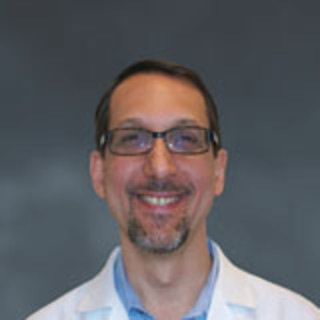I remember the inspired feeling I had as an internal medicine resident of wanting to get really good at things — interpreting electrolytes and ABGs, physical diagnosis, reading EKGs — the list goes on. As I gained experience, I was observed by senior residents, fellows and attending physicians who pointed out what I did well, and areas where my technique needed improvement. This was an exciting time, albeit exhausting, working towards mastery in my chosen specialty, or at least a level of competence that seemed commensurate with entering into practice.
Practicing as a full-fledged physician has been challenging and fulfilling as well, especially as many of my patients and I now share nearly two decades of history together. I have accumulated a great deal of experience, but it has been gathered privately in hospital rooms and office exam rooms where I no longer have a mentor looking to see that my technique is as good, better, or in need of improvement. In other words, I have gained a lot of experience, but a less certain quantity of expertise.
What is the difference? Merriam Webster defines experience as “practical knowledge, skill, or practice derived from direct observation of or participation in events or in a particular activity.” Expertise is simply “the skill of an expert”, and implies mastery of a skill set. Herein lies the problem: experience does not necessarily lead to expertise without observation, feedback, and mentorship — things few of us pursue once we have completed our training. Experience probably does help us to develop better clinical judgment, after seeing the myriad ways that illnesses can present, some unlike the classic textbook descriptions. Of course, we also read journals, attend conferences and discuss patient cases, but practicing our craft remains a largely private matter.
This stands in stark contrast to many other professional endeavors, such as music performance, creative writing and sports. Many professional musicians continue to take lessons, attend interactive master classes, or work under the tutelage of a conductor. Writers, including elite ones, have editors. Even the most accomplished professional athletes have coaches throughout their careers. Business executives are also seeking life or business coaching with increasing frequency.
Communication skills training is an excellent example of how real-time feedback can work very well in medicine. Communication is an area that is lacking in many physicians’ training. It is also unique in that it is difficult to be aware of how we come across without self-observation (video), or feedback from a coach. In my efforts to improve my own doctor-patient communication skills, and to become a resource to my colleagues, I chose to participate in a number of courses and workshops, all of which involved active participation and direct observation. This was not easy at first, and I felt very exposed. But the process was invaluable.
Communication skills workshops use role play, and standardized patient-actors to give participants an opportunity to practice skills, while facilitator/experts observe and give real-time coaching. Over the course of the day (most are full-day sessions), an intimacy can develop among the participants which helps all to feel safe critiquing each other’s performance. These experiences have improved my communication skills a great deal, and the resulting deeper connection that I have with my patients has made practice far more fulfilling.
Why are practicing physicians often reluctant to seek coaching or mentorship? The answer is unclear and surely multifaceted. The final common pathway of any and all reasons is that it has never become part of our culture. Consequently, it has also never become something our patients expect of us either. Atul Gawande, in his seminal New Yorker essay “Personal Best,” describes his own experience of engaging a surgical colleague as a coach to observe his surgical technique. While he describes his valuable learnings from the experience, the piece ends with a scenario where a patient in the pre-surgical holding area notices his mentor and asks who he is. When he explained that this was his coach, Gawande goes on to share that “The patient gave me a look that was somewhere between puzzlement and alarm.” Our fear that patients or colleagues may view those of us who work with coaches as requiring remediation is probably a significant hindrance to our embracing this practice more routinely.
Medicine stands to gain a great deal by making coaching and mentorship a part of our practicing physician culture. This can be accomplished in a number of ways, but offer the most value if positioned as a good-to-great endeavor. Interactive case discussion with specialists is also rare in post-residency primary care practice and may offer another opportunity for us to get out of our silos. There was a time when the hospital wards or radiology suite were interactive gathering places for most physicians, but this opportunity has been diminished by remotely viewed digital imaging and the segmenting of hospitalists and outpatient-only practitioners.
Skills coaching, whether for improving communication or other techniques, can be very enlightening, and may improve both the clinician and patient experience as well as clinical outcomes. Only with ongoing assessment and feedback can we accrue both experience and expertise. We just need to create a culture that embraces this.






